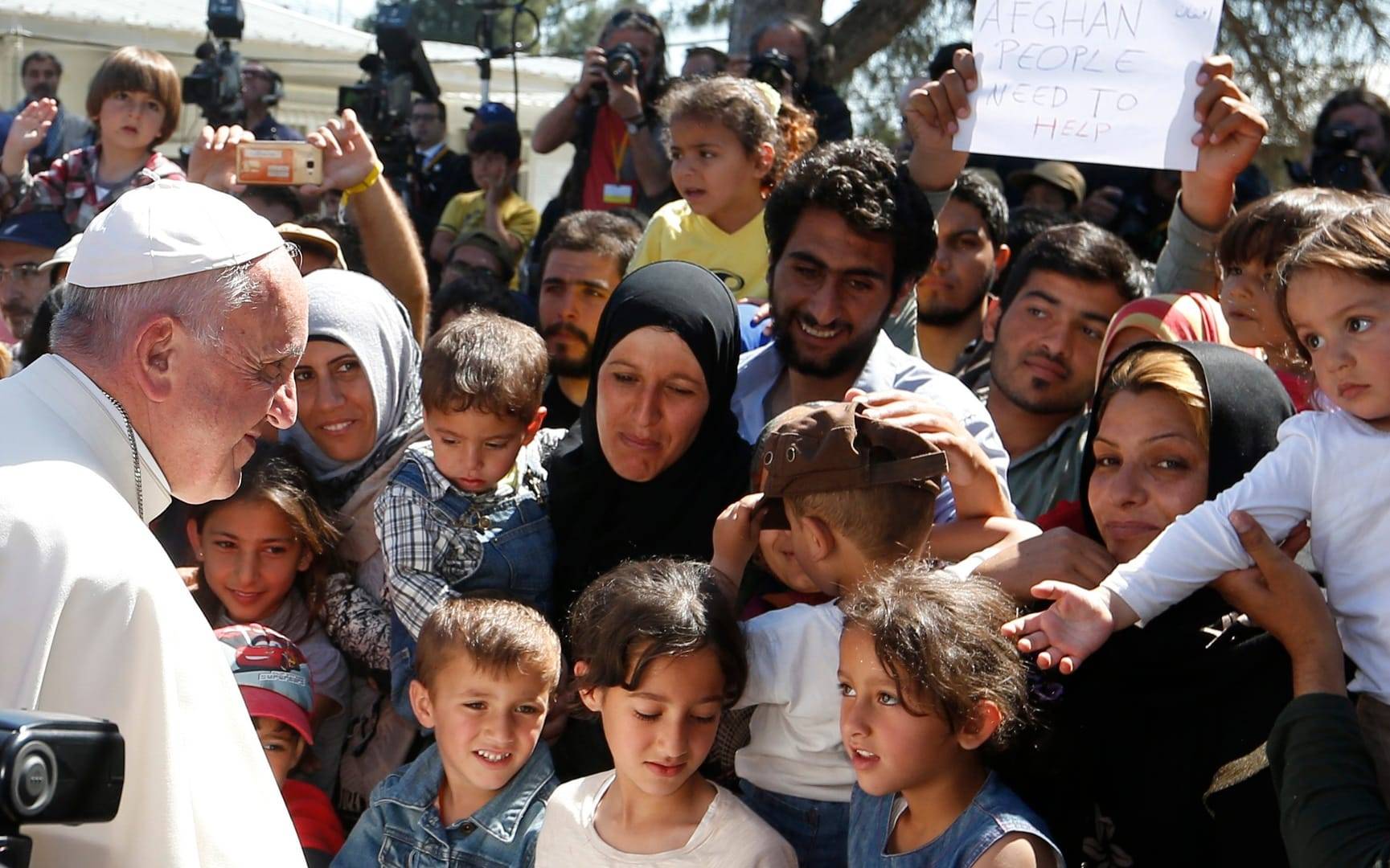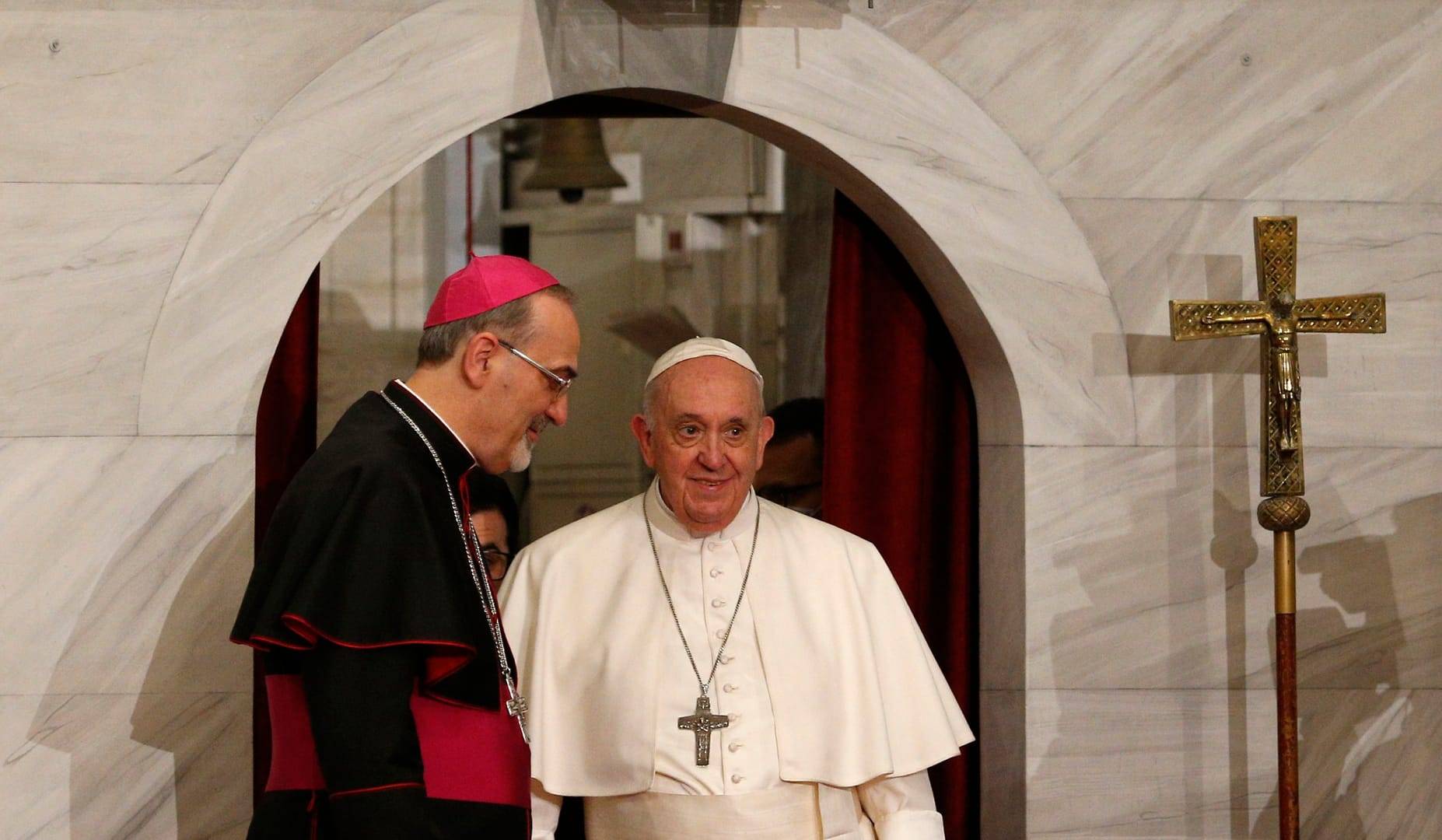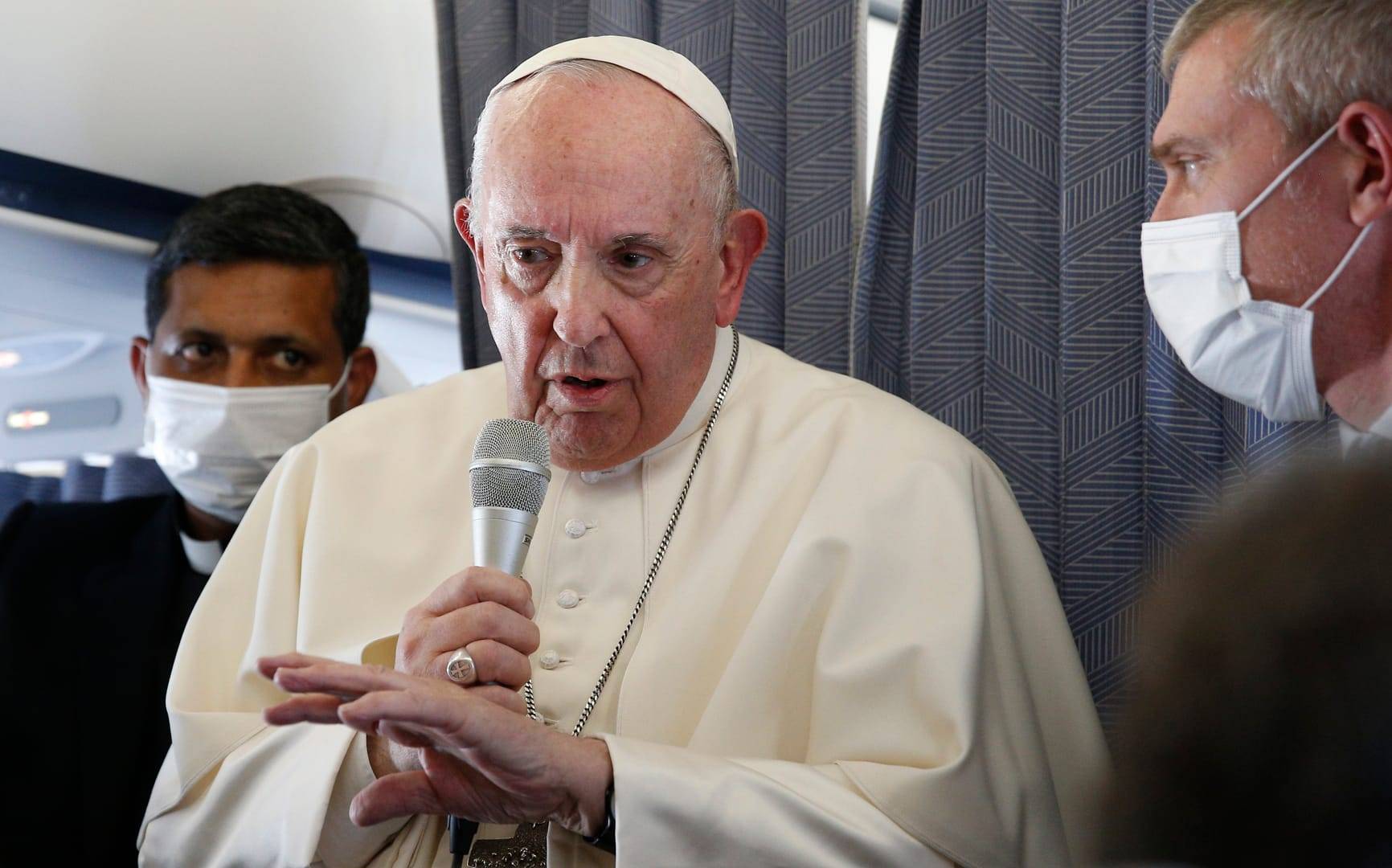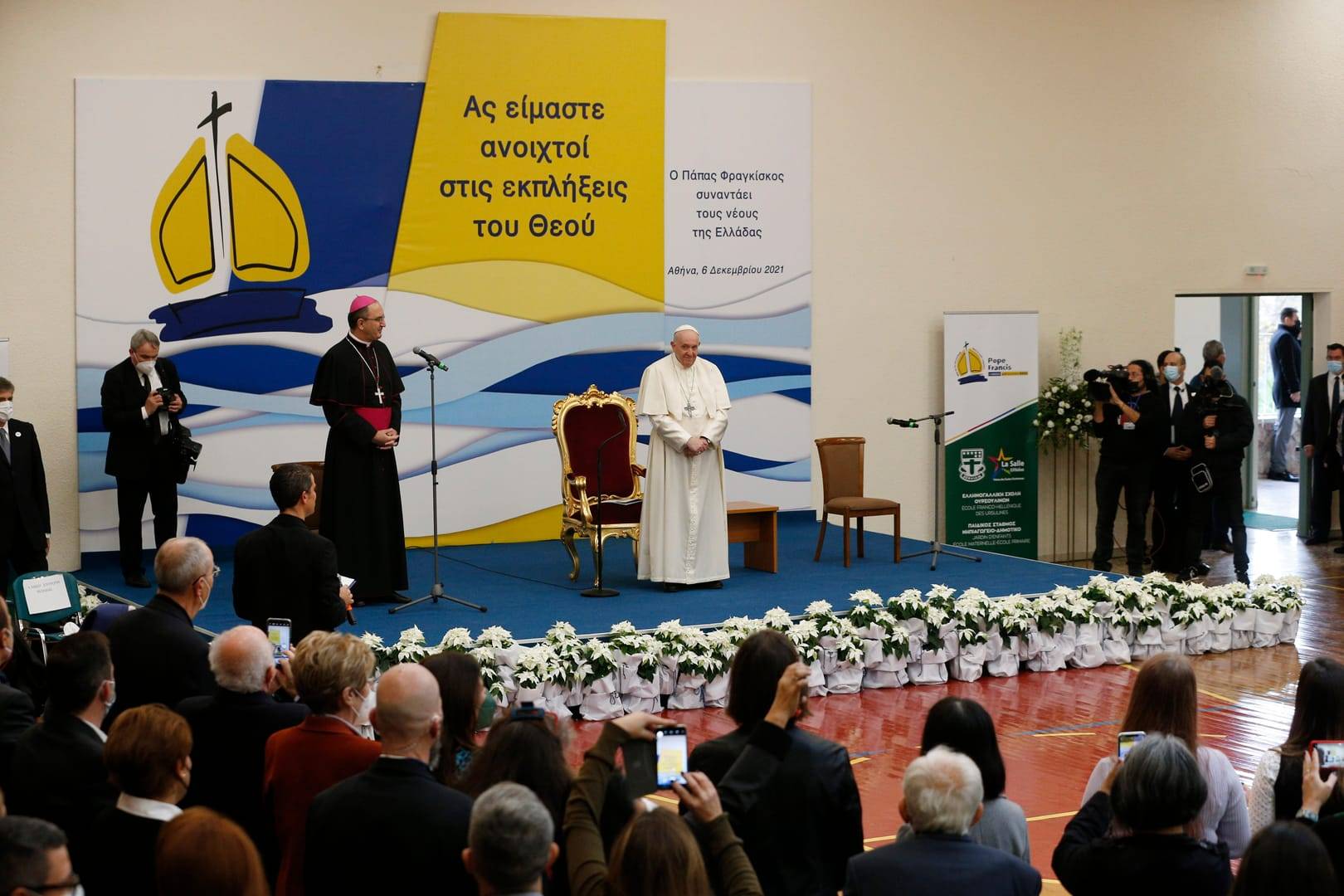LESBOS – Christian migrants and refugees living in the main reception camp on the Greek island of Lesbos have written Pope Francis a letter ahead of his visit to the facility today, sharing their woes and asking him to intercede with authorities on their behalf.
The letter, titled, “Cries of the Heart” and signed on behalf of the Christian migrant community on Lesbos, is part of a book of messages that will be given to the pope during his visit to the “Reception and Identification Center” on Lesbos Sunday, which is part of a broader Dec. 2-6 visit to Cyprus and Greece.
Pope Francis, who visited Lesbos in 2016, famously bringing a dozen Syrian Muslim refugees back with him on his return flight to Rome, will meet with around 250 people in the camp, and will visit some of the containers they live in.
The camp he visited in 2016, the overcrowded and largely unsanitary Moria camp, burned down last year, and the current camp is a temporary fix and the Greek government hashes out plans to build a new facility.
RELATED: For migrants on Lesbos, ‘improvement’ is highly relative
Most of the migrants and refugees on Lesbos come from Afghanistan, but there are also significant numbers from Syria and several African nations.
In their letter, provided to journalists by the pastor of the Catholic Church on Lesbos, the African Christians said they left their home countries, “abandoning our parents, wives and children to escape the various problems linked to our security.”
These problems, they said, include torture, forced marriages, prison sentences due to political, religious, and sexual differences, and general precarious conditions and situations.
“Our trip to Greece was a painful ordeal as we were victims of financial extortion, assault, and sexual abuse in order to pay for the sea crossing,” which sadly ended in the deaths of many of their fellow travelers, they said.
The migrants thanked Greece for welcoming them and providing them with basic needs such as food, clothing, and accommodation, calling it an “act of humanism.”
However, they said that for “reasons unknown to us,” most of their asylum applications have been rejected, not just once, but up to three or even four times for some.
In the meantime, they have nowhere to go as they either wait for further appeals to their rejected asylum requests to be processed, or as they try to figure out what to do next.
“Our dreams are shattered, we have no possibility of integration or education, and the future of our children sacrificed,” they said, saying they have been “involuntarily retained” on Lesbos for years “without any prospect of life.”
“Maybe we don’t qualify for international protection, but why don’t we get freed?” they asked, telling the pope that despite the “moral and psychological torture” they are enduring, they trust in God and remain hopeful.
“Yes, you are our hope. We beg you to plead for us so that the government of this country and all its European allies find a solution for us,” they said, explaining that they need official papers in order to leave the camp and integrate into Greek society, or elsewhere in Europe.
“We just want to be free and work to take care of ourselves and our different families,” they said.
They closed their letter asking God to inspire the pope and give him strength “to continue the mission he has entrusted to you.”
Follow Elise Ann Allen on Twitter: @eliseannallen














